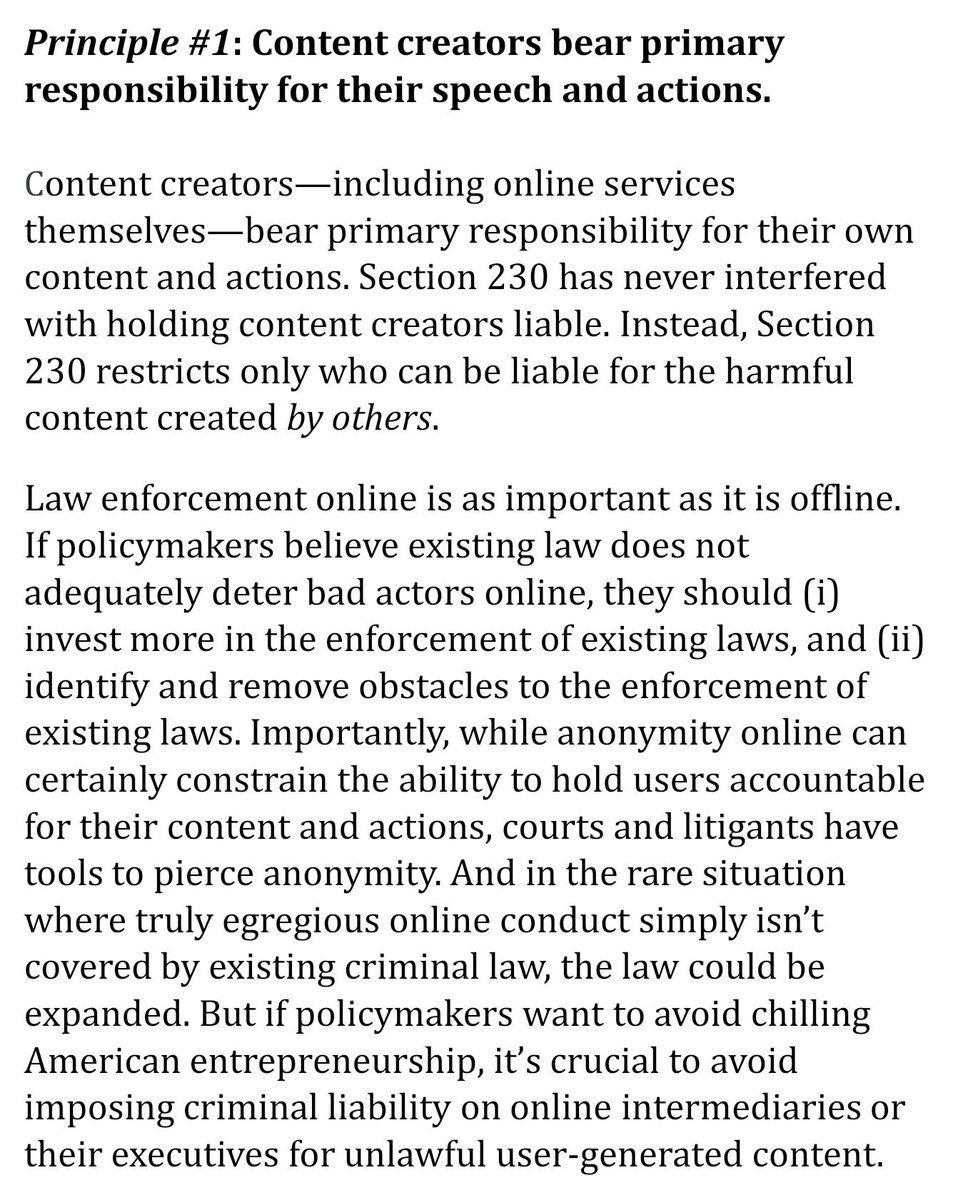
Today's Senate Judiciary Committee hearing will explore competition in app stores
To understand the enormous value created by app stores, you have to look back at the world before they existed
We explain how app stores benefitted both users & developers
techfreedom.org/wp-content/upl…
To understand the enormous value created by app stores, you have to look back at the world before they existed
We explain how app stores benefitted both users & developers
techfreedom.org/wp-content/upl…
The value app stores create isn't primarily economic: it's ensuring user trust by protecting the privacy of user data, the security of their devices, and even users' physical safety against those who might stalk them
App stores are especially important for families, protecting kids against a variety of threats, and empowering parents to decide what apps & media are appropriate for their kids
Parents simply did not have such powerful control before app stores launched in 2008
Parents simply did not have such powerful control before app stores launched in 2008
Some complain about commissions (15-30%) on leading app stores
But it wasn't so long ago that most software was distributed in physical media, and middlemen took 50-70%
App stores made distribution vastly more efficient, radically boosting developers' net revenues
But it wasn't so long ago that most software was distributed in physical media, and middlemen took 50-70%
App stores made distribution vastly more efficient, radically boosting developers' net revenues
Apple & Google's app stores are integral parts of their operating systems. Since launching in 2008, they've created an entirely new market for downloadable apps
The market for downloadable *desktop* software in 2008 was tiny. Even on the leading proto-app store, only one app had more than a million downloads web.archive.org/web/2008071117…
App stores addressed consumers' need for trust and convenience in multiple dimensions, vetting regular updates to apps and pushing them out to users' phones for automatic installation, and offering a unified, trusted payment system and mechanism for resolving disputes/refunds
While Apple and Google charged a higher commission (30%) than Download .com did (8-12%), they *created* an infinitely larger market, provided development tools, and easy ways to reach consumers
Some claim that Apple, Google, Microsoft and Amazon abuse "gatekeeper" power over their app stores
But the commissions they charge have only fallen: both Apple and Google recently cut their commission in half, to 15%, for the first million in revenue
But the commissions they charge have only fallen: both Apple and Google recently cut their commission in half, to 15%, for the first million in revenue
Meanwhile, Aptoide, a leading competing app store, charges 25% across the board
And in China, where the Play store is not available, alternative app stores can charge commissions as high as 50% inc42.com/features/the-m…
And in China, where the Play store is not available, alternative app stores can charge commissions as high as 50% inc42.com/features/the-m…
In short, there's no reason to think that app stores are earning monopoly rents in how they split revenue with developers
Innovation is steadily eroding the importance of getting app into app stores
Progressive Web Applications PWAs now offer much of the functionality of apps, and are actually much cheaper to develop
They run in the browser (even iOS), so don't require approval or commissions
Progressive Web Applications PWAs now offer much of the functionality of apps, and are actually much cheaper to develop
They run in the browser (even iOS), so don't require approval or commissions
Various pending state bills would force OS makers to allow "sideloading": installation of unverified apps from the Internet
Sideloading creates serious privacy and security risks
Android, Windows and MacOS already allows this today while iOS does not. That's the market at work.
Sideloading creates serious privacy and security risks
Android, Windows and MacOS already allows this today while iOS does not. That's the market at work.
Requiring the installation of third-party app stores creates the same risks as sideloading--unless those stores screen apps just as carefully. Amazon tries to do that but other alternative app stores just can't. It's a hugely costly and complex undertaking.
Finally, some have proposed to require app stores to allow developers to use alternative payment systems. This would have the same effect as price caps: allowing developers to free-ride off the app store and OS that is supported by revenues from the app store
Congress (and states) shouldn't rush into legislating around app stores. The market is thriving, and there's too much at stake for consumers to risk getting this wrong
At a minimum, let the #antitrust suits over market power in app stores play out in court before legislating
At a minimum, let the #antitrust suits over market power in app stores play out in court before legislating
Tune in at 2:30 eastern for the Senate Judiciary hearing on app stores: judiciary.senate.gov/meetings/antit…
For livetweeting about the ongoing app store competition hearing, follow our own @BerinSzoka
https://twitter.com/BerinSzoka/status/1384943683703918594
• • •
Missing some Tweet in this thread? You can try to
force a refresh





